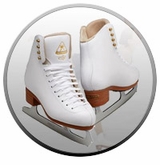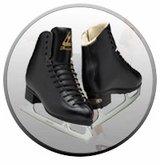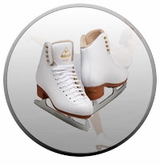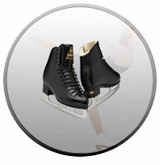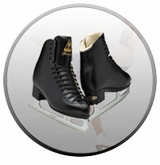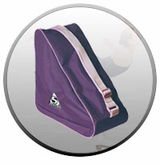Backyard Ice Rinks
Learning how to build a backyard ice rink can be an excellent project for the entire family. The time and effort planning, and actually building the ice rink can create fond memories that can last a lifetime. Learning how to build a backyard ice rink, when compared to other forms of entertainment, is relatively inexpensive considering the potential number of hours it could be used. Having an ice rink in your backyard also provides a safer, more family friendly environment for the children; you know where they are and who they are with. Finally, in addition to all of these positive aspects of learning how to build a backyard ice rink – it is a fun thing to do!
Backyard Ice Rink Equipment, Supplies and Requirements
As you begin to plan for the materials and equipment you’ll need to build your backyard ice rink, it is important to realize that you have options. There is more than one way to build an ice rink in your backyard, although the basic concepts will remain the same. We have compiled a potential list of equipment, materials, and requirements to help you as you learn how to build and maintain a backyard ice rink.
Equipment: 1. Power Drill 2. Screwdriver 3. Hammer 4. Sledge Hammer 5. Tape Measure 6. Rake 7. Snow Shovel 8. Broom. Material: 1. String 2. Boards 3. Stakes (metal or wood) 4. Screws 5. Nails 6. Tarp or Polyethylene Plastic Rolls 7. Water Source
Requirements
The first requirement for building an ice rink in your backyard is to live in a climate where it stays cold <0 to ~30 degrees Fahrenheit for several weeks at a time. Based on the temperature alone, a large part of the world is not conducive for building an outdoor ice rink. Assuming that the temperatures are right, the next requirement to consider is the surface. In order to build an ice rink, the surface you intend on using must be near level. If the surface is not level, steps should be taken to make it as level as possible.
How to Build a Backyard Ice Rink Step by Step
1. Determine exactly where your backyard ice rink will be built, and prepare the ground surface in that area. Preparations may include raking, digging up rocks, leveling small sink holes, and removing anything that could possible puncture the ice rink liner.
2. Cordon off the area you intend to use for the ice rink with string or any other simple method to establish the dimensions of the ice rink. Take measurements of the dimensions and develop a list of the specific required materials.
3. Once you’ve purchase the material, start laying down the boards around perimeter. Once the boards are in place, turn them up on their edge and fasten them together. The boards should be at least 8” high, or higher to compensate for leveling. You have options regarding how you fasten them. One option is to use smaller boards, fastened to the outside of the perimeter boards. On the corners, use nails or screws to hold them in place. You will also drive a stake in the ground every few feet around the entire perimeter to support the boards as they hold back the water. Please note that once your backyard ice rink is in place, these stakes should be leveled to the same height or lower than the boards supporting the ice rink.
4. Once your perimeter is built and the ground surface is level, and free from obstructions, the next step is to lay down the tarp or plastic liner. Do not lay your tarp or plastic down until you are ready to start filling it with water. Make sure the liner is void of wrinkles and extends a foot or two beyond the perimeter of your backyard ice rink. You have options regarding how you fasten the liner. If it is a tarp, you can use the grommets to fasten it down. If it is a plastic liner, you can use a stapler or small nails. Either way, once the liner is in place it should be secured. As you begin filling the ice rink with water, keep an eye on the liner to make sure it stays in place. If it pulls in, you may have to refasten it (this is why you overlap a foot or two).
5. The last major step is filling your backyard ice rink with water; here you have options as well. You can run the water a few hours each day, or let it run continually until it is full. Either way, as mentioned, make sure the temperature is well below freezing, and will stay consistently low for a period of time. Fill the ice rink up to at least two inches of water or more if desired, but keep in mind that once the water freezes it will expand upward to some degree. It may take two or more days for the water to completely freeze depending on the temperature.
6. Lastly there are a few other factors you might consider once your backyard ice rink is built. First, if you know you are going to want to skate at night, some lighting will be required. You will either need to install some lights or build the ice rink near an area where lights already exist. Second, if you want the ability to play hockey you’ll have to purchase or build a hockey goal. If you include a hockey goal, you may also want to consider installing some type of fence to help keep the puck in the rink.
Backyard Ice Rink Maintenance
In order to significantly extend the useful life of your backyard ice rink, and maintain a quality surface, your ice rink will require some relatively minor maintenance. Because your ice rink is outdoors in the elements, you will require maintenance beyond re-smoothing the surface to fill in any cracks or deep grooves caused by the ice skate’s blade. You may also have to shovel off snow, leaves, and any other debris that makes its way on to your backyard ice rink.
General Equipment: To maintain your backyard ice rink under normal conditions, you’ll need a snow shovels, a broom, a trowel and a hot water source for re-flooding.
Resurfacing Backyard Ice Rinks: The ice rink will inevitably become chipped and have excessive grooves left by the ice skate’s blade. In order to regain a smooth skating surface, you will need to re-flood the rink, preferably with hot water. We recommend re-flooding during the coldest time of the day, and after all ice skating is finished for that day. If the ice rink develops bumps you will need to use hot water and melt that area, and re-level it with a metal trowel or similar tool. In addition, you should shovel your backyard ice rink’s surface following an hour or two of skating, depending on the number of skaters and the condition of the ice.
How to Disassemble your Backyard Ice Rink
Once the temperature is above freezing often enough to make it impossible to continue using the ice rink, it is time to come down. As with most things, you have options for removing the ice rink. We suggest you take a slow approach. Create openings in the rink where the water can gradually drain out. When the water is completely drained, disassemble the structure in such a way that you can re-use the material again the next year. The only exception will be the tarp or plastic liner. Whatever type of liner you used will not be reusable and must be discarded. Your backyard ice rink should be dissembled early enough in the season to prevent damage to surface underneath. If you leave the liner down for too long it can damage or destroy the grass beneath.
|
Skate Equipment >
Ice Skating Equip
Ice Skating Info
.
